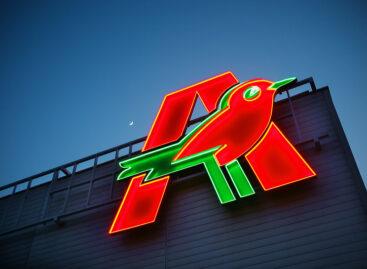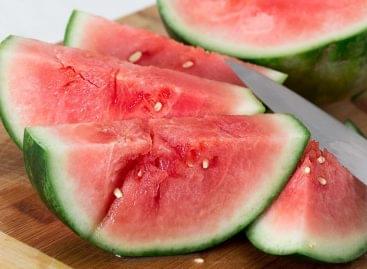Health, nature, wallet
Organic food is defined as products that don’t contain artificial additives or preservatives, and are grown and produced without the use of synthetic chemicals, pesticides or genetically modified plants or animals (GMOs).
This article is available for reading in Trade magazin 2024/8-9
Global sales of organic food amounted to USD 245bn in 2023 and if projections are to be believed, this figure will approach USD 280bn this year and USD 488bn in 2028. Experts say this strong growth is the result of not only the growing number and awareness of consumers who understand the benefits of organic products, but also of external factors such as the rise in food poisoning cases or strong economic growth in emerging markets. Europe is the biggest market for organic food, especially Germany, France and the UK.
Why choose organic?
Demand for organic food is driven by changes in the lifestyles of consumers, their growing incomes, and their attitudes towards natural food. Shoppers are looking for products that are free from harmful chemicals and pesticides, and they are willing to pay a premium for foods that offer health benefits and contribute to sustainability. Plus the growing environmental awareness of consumers in developed countries has led to a shift towards sustainable and environmentally friendly practices. Various European governments are introducing regulations and initiatives to promote organic farming and increase the size of the organic food market. Companies in the organic food market are concentrating on introducing new product categories and varieties, e.g. ready-to-eat snacks.
Limits and opportunities
Despite the growing consciousness of shoppers, a large proportion of people are still unaware of organic products and their benefits – and they are reluctant to even try them. Even more so because the price of organic food is almost always higher than that of conventional food, mainly due to costly organic farming practices and limited economies of scale. Higher prices mean that less well-off consumers have little access to these products.
The shorter shelf-life of organic food also limits the market. Market researchers see the most promising opportunities for market growth in three main areas:
1. product innovation – snacks, functional drinks and plant-based alternatives,
2. expansion of distribution channels,
3. using online platforms. //
Nutrition advice for consumers

Katalin Sarkadi
head of marketing
Abonett
Consumers are still looking for quality products and those with organic certification. This category is also affected by inflation and this has influenced purchasing habits, which has led to a moderate sales decline. We try to meet the needs of our customers with regular price promotions and we also offer nutrition advice on how to make Abonett products part of their daily diet, as these products are reliable, local, long-lasting, additive- and preservative-free bread alternatives. //
A strengthening market

Csaba Vajdahunyadi
sales and
marketing director
Globus
According to market research results, demand for organic food is steadily growing, driven primarily by strengthening health consciousness and sustainability concerns. Although organic products are generally more expensive, a significant group of consumers is willing to pay more for superior quality and health benefits. This growing trend is fuelled mainly by shoppers who are environmentally conscious and generally have higher incomes. Globus offers canned organic sweet corn and peas in the category. //
Organic drinks are developing the fastest

László Varga
purchasing director
Auchan
By 2023 there was a significant sales decline in the organic category as a whole, mainly due to the price sensitivity of customers. However, in the last year and a half the category has started to develop again. The most popular and fastest growing areas are clearly beverages, including vegetable drinks, vegetable juices, and beers, which are the most sought-after by shoppers. As a reaction to this trend, we launched private label organic vegetable drinks earlier this year. //
All the benefits
1. The term “organic” is protected by law and is clearly defined and regulated by the EU’s organic regulation.
2. Buying organic also means supporting regional feed production.
3. Organic food contains less pesticide residue.
4. Organic fruits are allowed to ripen longer and organic vegetables are given more time to grow in the fields.
5. There are no artificial flavours, flavour enhancers or colours.
6. The use of genetic engineering is prohibited by law.
7. Crop rotation, organic fertilisation, mixed growing and careful soil cultivation ensure high levels of biological activity.
8. There are no synthetic chemical pesticides and fertilisers that leach into the groundwater.
9. Organic livestock production is clearly regulated and benefits the animals.
10. A diverse crop rotation and avoidance of synthetic chemical pesticides help bees to survive and pollinate flowers. //
With innovative products

Noémi Makai
marketing manager
Hipp
Today HiPP is one of the world’s largest organic raw material processors and the number one producer of organic baby food. Organic is an important trend today, mainly because of health-consciousness, but we also believe it is essential to continue educating consumers on sustainability aspects in this context. Hipp’s success is also the result of launching innovative products. The development and introduction of easy-to-recycle packaging is another focus area. //
A diverse product selection

Éva de Gereczné
Rudnai
purchasing and
marketing manager
Real Nature
Thanks to modern food innovations and production, today the non-organic segment also offers excellent options in various diets and functional nutrition trends, including protein, collagen, dairy-, sugar- and GMO-free, vegan, vegetarian, and many more product categories. Owing to these developments, we believe that the organic label alone isn’t the only guide and option for consumers: they now find a much more diverse product range in stores than before when they are looking for healthy options. //
How much are Hungarian shoppers looking for organic and functional foods?
High inflation in 2022-2023 affected the food buying habits of Hungarians. From the end of 2021 to mid-2023, the Hungarian population experienced a price hike of more than 40% in the food segment. In response households have sought to control their expenditure by cutting back on the amount of food they put in their shopping baskets and switching to cheaper products.


KrisztinaBakonyi-Kovács
senior product consultant
GfK Consumer Panel
Food saving became a central theme, but healthy eating and quality food consumption gradually became less important. As fruit and vegetable prices began to rise, there was a significant decrease in the proportion of people who preferred fresh food to frozen or processed food (62% compared to 72% previously), paired with a considerable decrease in the proportion of people who were willing to pay a price premium for fresh goods (32% and 41%). Inflation has led to a temporary shift towards price over health, which entailed a decline in demand for natural and organic food. In 2023 only 17% of respondents said they were consciously looking for organic food in shops, compared to 22% in 2021.
Although two thirds of households buy some organic products from time to time, they are far from being regular purchasers. The proportion of shoppers who buy such food minimum weekly is only a few percent. Consumers say the main advantage of organic food is that it is healthy, while in the drug category the emphasis is on being chemical-free and environmentally friendly. A major obstacle to the spreading of organic products is that most people think they are too expensive. The consumer base for functional foods is much bigger: more than half of households buy some form of free-from or special diet food on a weekly basis. Sugar-free foods have the biggest buyer base, followed by lactose-free ones. Organic and gluten-free foods have an annual household penetration of 20-30%, and there is a lower penetration level for plant-based foods. //
Related news
Auchan Placc refilled – fresh offer and affordable prices on EFOTT!
Auchan Placc is opening its doors at EFOTT for the…
Read more >Auchan Romania Rolls Out Bulk Collection For Deposit Return System
Auchan Romania has introduced a new bulk collection system at…
Read more >Schwarz Group acquires Romanian big box operator La Cocoș
In a market shaped by hypermarket contraction and discount dominance,…
Read more >Related news
Drought, technological competition and collaboration: the domestic melon season has begun
The 2025 Hungarian melon season starts amidst serious challenges: the…
Read more >Leadership change at Fornetti: Nándor Szabó is the new Managing Director
Nándor Szabó will take on the role of CEO of…
Read more >Change in Zwack management: Csaba Belovai is the new CEO of Zwack Unicum Plc.
According to the decision of the owners of Zwack Unicum…
Read more >






